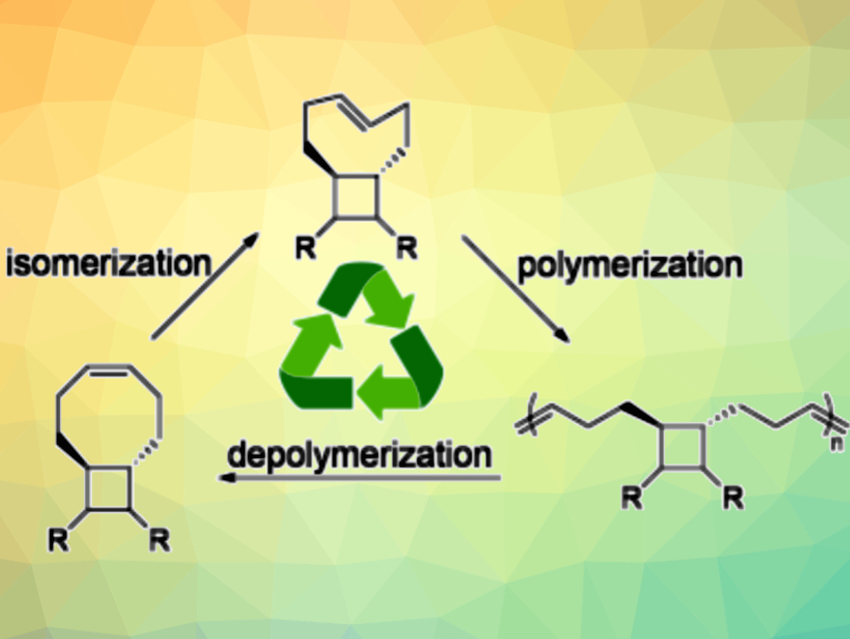Plastics pollution is a global problem. Chemical recycling—converting a polymer back into its monomers—is one way to reuse plastic waste. Many existing chemically recyclable polymers are composed of cyclic monomers with low ring-strain energies. This results in a low polymerization driving force, which can make it difficult to achieve full conversion.
Junpeng Wang, University of Akron, OH, USA, and colleagues have addressed this problem by using an isomerizable, fused-ring cyclooctene monomer (pictured above). A photochemical cis-to-trans isomerization of the cyclobutane-fused cyclooctene raises the ring-strain energy of the molecule. This enables polymerization with a high driving force. The team was able to use this monomer in a living ring-opening metathesis polymerization (ROMP) and in the synthesis of block copolymers.
The synthesized polymers can depolymerize to form the low-strain cis-cyclooctene monomer. According to the researchers, the isomerization–polymerization–depolymerization closed loop is well-suited to chemical recycling and could be extended to other chemically recyclable polymers with diverse architectures.
- Overcoming the Low Driving Force in Forming Depolymerizable Polymers through Monomer Isomerization,
Hanlin Chen, Zhen Shi, Tze-Gang Hsu, Junpeng Wang,
Angew. Chem. Int. Ed. 2021.
https://doi.org/10.1002/anie.202111181

![Synthesis of [c2]Daisy Chains via Mechanochemistry](https://www.chemistryviews.org/wp-content/uploads/2025/04/202504_RotaxanesWithSolidStateMechanochemistry-125x94.png)

